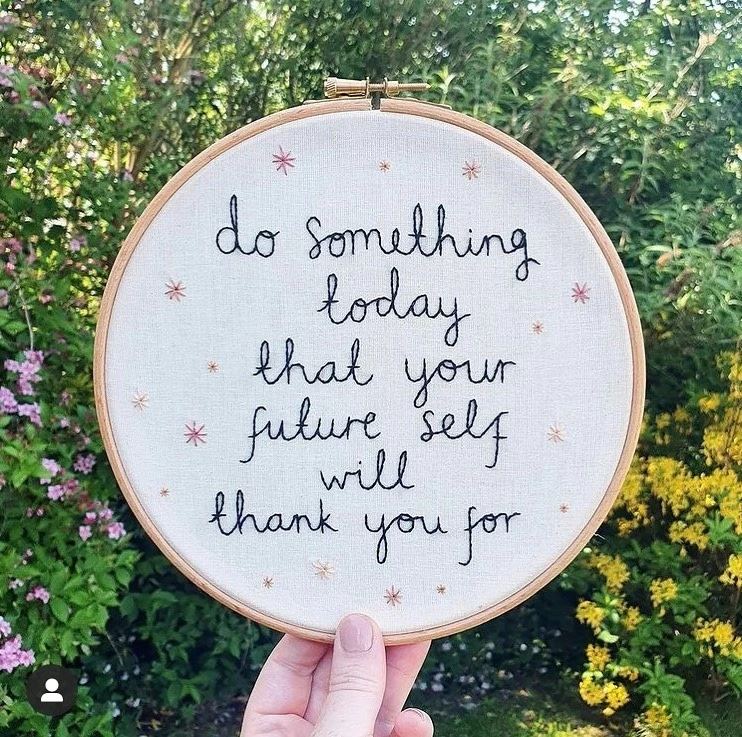
3 quick tips for stress relief
1ST SEPTEMBER 2023
How do you cope with stress and get it under control quickly? How do you calm your brain and ease the pressure? Read these three short, stress busting tips to help reset your mindset and release the tension.

How do I calm my anxiety down if I’m feeling stressed?
Ok we’ll keep this short. The last thing you need right now is more to do, so this will take just three minutes to read. However, if your world’s in a tangle, everything’s piling up and it’s making you anxious, there are three super quick, stress busting techniques that might help. (Note: your first urge might well be to shout, “Why on earth would I want to think about this when I’m already stressed up to the eyeballs and have about as much free time as a mum of twelve, trading shares while balancing a fork on my finger?!” But the answer would be, “Well because if it might just work, is it worth a try?” Decide for yourself…
Tip 1: Need better stress management to reduce and relieve stress? Change your headspace
It’s hard to fix anything when you’re panicking and ‘in it’. Plus if you keep doing what you’re doing, you’ll keep getting what you’ve got. Something’s got to change. This can be as simple as taking five minutes to clear your head. Go outside and walk up the road — but as you walk, only look for green things and try to remember as many of them as you can by the end. It’s a creative task that can help you see the same things you always see in a whole new light, and might just unblock something in your brain. It’s also about mindfulness. So by focusing on these, you’re not focusing on the issues for a moment and are getting some fresh air and exercise — all of which could do you good (or for more specific advice on this, try our ‘Self-care tips for small business owners’ article with The Blurt Foundation).
Alternatively, try and get out to the park for a short while. According to Yale University, “Studies have shown that time in nature — as long as people feel safe — is an antidote for stress: It can lower blood pressure and stress hormone levels, reduce nervous system arousal, enhance immune system function, increase self-esteem, reduce anxiety, and improve mood. Attention Deficit Disorder and aggression lessen in natural environments¹.” Finally, try listening to a podcast like Conversations of Inspiration or there are shorter ones too such as Practical Positivity. Hearing heart-lifting, action-led stories of how others have gone through something similar or just inspiringly different will likely help.
Send a surprise card. Make an online donation. Do a good deed. There is evidence to suggest that when you help others, it can promote physiological changes in the brain linked with happiness.² And the happier you feel, the less stressed you’re likely to be.
Tip 2: Do one thing now your future self will thank you for
Take a few moments and plan in one nice thing to do next month. This will give you something to look forward to which might help calm your mind. Alternatively do something kind for someone else. Send a surprise card. Make an online donation. Do a good deed. There is evidence to suggest that when you help others, it can promote physiological changes in the brain linked with happiness.² And the happier you feel, the less stressed you’re likely to be. Finally, try and do something your future self will thank you for. Getting organised helps make sense of the chaos in your brain. So even if it’s not directly sorting out the issues at hand, it might reduce overall stress by taking one more thing off your noisy to-do list.
Tip 3: Don’t forget to have fun
This is important. Set aside 15 minutes today for ‘joy time’. Joy time is anything that makes you happy. Lie on the floor, play three songs that most make you feel like you and just listen. Text a friend a gif that reminds you of a funny memory. Make up the most creative evening you can think of with someone you love and book it in.
Most importantly, try and keep in mind that it’ll all get done, it always does, 15 minutes won’t make much difference, so focus on what’s important. Be kind to yourself. On your deathbed, you’re unlikely to look back and think about harsh words from a customer or the emails you didn’t reply to. It’s the laughter, the happy times, the people you love. So try not to keep deprioritizing these things. Spend your energy wisely. You are in control. Don’t forget to have fun.
Stress relief: key takeaways…
Here are three main points to remember.
1. Change your headspace:
Get outside, go for a walk or just change rooms even.
2. Do something now to benefit your future:
Planning ahead helps you get out of the moment.
3. Remember, you’ve only got one life — enjoy it:
Don’t forget to have fun.

Sources: 1. Yale environment report 2. Altruism health benefits.
Images: Pharmacy bag — by Team Holly & Co.
Related content
MORE ARTICLES ON MENTAL WELLBEING

Self-care tips for small business owners

How to stay creative and resourceful under pressure

How do you overcome fear of failure in business?

Closing your business: the emotional effects and how to let go with love

